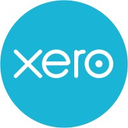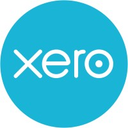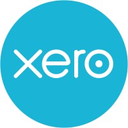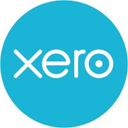Xero vs Zervant (2026 Comparison)

Xero offers a comprehensive suite of accounting features, making it a top choice for businesses seeking robust financial management tools. Its strong security measures and robust integrations enhance its appeal.
- Comprehensive accounting features
- Robust integrations
- Strong security measures
- Steep learning curve
- Higher cost for small businesses
Free plan?
YesStarting price
$2.90 per month
Zervant provides a user-friendly interface and specialized invoicing features, making it ideal for freelancers and small businesses. Its responsive customer support adds to its value.
- User-friendly interface
- Specialized invoicing features
- Responsive customer support
- Limited accounting features
- Fewer integrations available
Free plan?
YesStarting price
£8,99 per monthWhat is Xero?
Xero is a cloud-based accounting software designed to simplify financial management for small to medium-sized businesses. It offers features like invoicing, bank reconciliation, and financial reporting, making it easier for businesses to keep track of their finances. With Xero, you can access your financial data from anywhere, collaborate with your accountant, and automate repetitive tasks, saving you time and effort. Its user-friendly interface and robust integrations with other business tools make it a popular choice for businesses looking to streamline their accounting processes.
What is Zervant?
Zervant is an invoicing software that caters to freelancers and small businesses, providing an easy way to create and send invoices. It helps users manage their billing processes efficiently, offering features like time tracking, expense management, and payment reminders. Zervant's intuitive interface makes it simple for users to generate professional invoices and keep track of their financial transactions. By automating invoicing tasks, Zervant allows users to focus more on their core business activities, enhancing productivity and ensuring timely payments.
Pros and Cons of Xero vs Zervant

Pros & Cons of Xero
- Xero offers a wide range of accounting features, including invoicing, payroll, and financial reporting, making it a one-stop solution for businesses seeking robust financial management tools.
- With a vast array of integrations, Xero seamlessly connects with other business tools, enhancing its functionality and making it a versatile choice for businesses.
- Xero prioritizes security with robust measures to protect financial data, making it a trusted choice for businesses concerned about data protection.
- Xero's comprehensive features may require a learning curve, which can be challenging for users new to accounting software.
- Xero's pricing may be higher for small businesses, especially those that only need basic invoicing and accounting features.

Pros & Cons of Zervant
- Zervant's intuitive interface makes it easy for users to create and send invoices, making it a great choice for those who prioritize simplicity.
- Zervant focuses on invoicing, offering specialized features that streamline the billing process and ensure timely payments.
- Zervant is praised for its responsive customer support, providing users with quick and helpful assistance when needed.
- Zervant's focus on invoicing means it lacks the broader accounting features that businesses may need for comprehensive financial management.
- Zervant offers fewer integrations compared to other accounting software, which may limit its adaptability for businesses using multiple tools.
Xero vs Zervant: At A Glance
Value to Price
Xero offers a comprehensive suite of accounting features that provide excellent value for its price, making it a top choice for businesses seeking robust financial management tools. Zervant, while more affordable, focuses primarily on invoicing, which may limit its value for businesses needing broader accounting capabilities. If you need a full-fledged accounting solution, Xero is the better choice.
Ease of Use
Zervant shines in ease of use with its straightforward interface, making it ideal for users who prioritize simplicity in invoicing. Xero, while user-friendly, offers more complex features that may require a learning curve. If you prefer a simple and intuitive invoicing tool, Zervant is the way to go.
Functionality
Xero excels in functionality, offering a wide range of accounting features beyond invoicing, such as payroll and inventory management. Zervant, on the other hand, focuses on invoicing and lacks the broader functionality of Xero. If you need comprehensive accounting features, Xero is the superior option.
Scalability
Xero is designed to scale with your business, offering features that support growth and expansion. Zervant, while suitable for small businesses, may not provide the scalability needed for larger enterprises. If you anticipate business growth, Xero is the better choice for scalability.
Integrations
Xero offers a vast array of integrations with other business tools, enhancing its functionality and making it a versatile choice for businesses. Zervant provides fewer integrations, which may limit its adaptability. If you rely on multiple business tools, Xero's integrations make it the better option.
Customer Support
Both Xero and Zervant offer reliable customer support, but Zervant's support is often praised for its responsiveness and helpfulness. Xero provides comprehensive support resources, but some users report longer response times. If quick and responsive support is crucial, Zervant may be the better choice.
Security
Xero prioritizes security with robust measures to protect financial data, making it a trusted choice for businesses. Zervant also offers solid security features, but Xero's reputation for security is more established. If security is a top concern, Xero is the more reliable option.
Overall Rating
Xero's overall rating reflects its comprehensive features and strong performance in various dimensions, making it a top choice for businesses seeking a full accounting solution. Zervant, while highly rated for invoicing, may not meet the needs of businesses requiring broader accounting capabilities. If you need a complete accounting package, Xero is the better choice.
Xero vs Zervant: A Detailed Breakdown of Key Features
Invoicing
When it comes to invoicing, Zervant takes the lead with its specialized focus on creating and sending invoices effortlessly. Its user-friendly interface makes it a breeze to generate professional invoices, which is a huge plus if you're looking for simplicity. Xero, while offering invoicing capabilities, provides a more comprehensive suite of accounting features, which might be overwhelming if invoicing is your primary need. If invoicing is your main focus, Zervant is the better choice.
Expense Tracking
Xero excels in expense tracking, offering detailed features that allow you to monitor and categorize expenses efficiently. This is particularly beneficial if you need to keep a close eye on your business spending. Zervant, while offering basic expense tracking, doesn't provide the same level of detail and functionality as Xero. If comprehensive expense tracking is important to you, Xero is the superior option.
Bank Reconciliation
Xero's bank reconciliation feature is top-notch, allowing you to easily match transactions and ensure your accounts are accurate. This is crucial for maintaining financial accuracy and avoiding discrepancies. Zervant's bank reconciliation is more basic, which might be sufficient for smaller businesses but lacks the depth of Xero's offering. If precise bank reconciliation is a priority, Xero is the better choice.
Financial Reporting
Xero stands out in financial reporting, providing a wide range of customizable reports that give you insights into your business's financial health. This is invaluable for making informed business decisions. Zervant's reporting capabilities are more limited, focusing primarily on invoicing-related reports. If you need comprehensive financial reporting, Xero is the superior choice.
Time Tracking
Both Xero and Zervant offer time tracking features, but Xero provides more advanced options that integrate seamlessly with its other accounting features. This is beneficial if you need to track time for billing or project management purposes. Zervant's time tracking is straightforward and easy to use, making it suitable for basic needs. If you require advanced time tracking, Xero is the better option.
Mobile App
Xero's mobile app is robust, offering a wide range of features that allow you to manage your finances on the go. This is ideal if you need to access your financial data from anywhere. Zervant's mobile app is user-friendly and focuses on invoicing, which is great if that's your primary need. If you need a comprehensive mobile app, Xero is the superior choice.
Pricing Comparison of Xero and Zervant
To assist you in making an informed choice, we’ve outlined the pricing plans and essential features of Xero and Zervant. This comparison will highlight the best option for managing your financial needs.

Xero Pricing Plans
- Enter up to 5 bills for efficient tracking.
- Reconcile bank transactions with ease.
- Capture bills and receipts using Hubdoc integration.
- Access short-term cash flow and business snapshot.
- Enter unlimited bills for comprehensive tracking.
- Bulk reconcile transactions for efficiency.
- Advanced reporting and analytics for insights.
- Enhanced security features for data protection.
- Advanced project tracking and management tools.
- Priority customer support for quick resolutions.
- Comprehensive expense management features.
- Customizable dashboards for personalized insights.

Zervant Pricing Plans
- Manage up to 5 customers with ease.
- Send invoices via email or PDF format.
- Access support in 5 different languages.
- Utilize the mobile app for invoicing on the go.
- Send unlimited invoices without restrictions.
- Convert estimates directly into invoices.
- Send payment reminders to clients automatically.
- Attach documents to invoices for detailed information.
- Transfer tracked time directly to invoices.
- Set up recurring invoices for regular clients.
- Manage multiple tradenames under one account.
- Connect your bank for seamless transactions.
- Change currency settings for international clients.
- Access advanced payment schedules and down payments.
- Benefit from enhanced bank connection features.
- Utilize comprehensive recurring invoice options.
Our Rating Methodology
We thoroughly evaluate each accounting software, focusing on key aspects like functionality, ease of use, and security. By analyzing user reviews and testing features, we ensure our recommendations fit your needs. Each factor is weighted to provide an accurate final rating, helping you make informed decisions.
Xero or Zervant: Which One Matches Your Business Needs?
Choose Xero If You Need ...
- Comprehensive accounting solution
If you need a comprehensive accounting solution that offers a wide range of features, including invoicing, payroll, and financial reporting, Xero is the better choice. Its robust functionality makes it ideal for businesses seeking a full-fledged accounting tool.
- Robust integrations available
If you rely on multiple business tools and need a software that offers robust integrations, Xero is the superior option. Its vast array of integrations enhances its functionality and adaptability, making it a versatile choice for businesses.
Choose Zervant If You Need ...
- Simple invoicing needs
If you have simple invoicing needs and prioritize ease of use, Zervant is the better choice. Its user-friendly interface and specialized invoicing features make it ideal for freelancers and small businesses.
- Responsive customer support
If responsive customer support is crucial for you, Zervant is the superior option. Its support team is praised for its quick and helpful assistance, ensuring that users receive the help they need when they need it.
Frequently Asked Questions
 Which tool is better for comprehensive accounting needs?
Which tool is better for comprehensive accounting needs?
 Which tool offers better invoicing features?
Which tool offers better invoicing features?
 Which tool provides more integrations?
Which tool provides more integrations?
 Which tool is more user-friendly?
Which tool is more user-friendly?
 Which tool offers better customer support?
Which tool offers better customer support?
 Which tool is more secure?
Which tool is more secure?

Martin Lunendonk
Martin Lunendonk is a senior tech writer specializing in website builders, web hosting, and ecommerce platforms. With a background in finance, accounting, and philosophy, he has founded multiple tech startups and worked in medium to large tech companies and investment banking, bringing deep expertise and reliable insights to his software reviews.



